Product Configuration
Product Creation
The product configuration in the Odoo Inventory module can be done by selecting
the Product menu available in the home dashboard. The image of the product’s window
is depicted below.
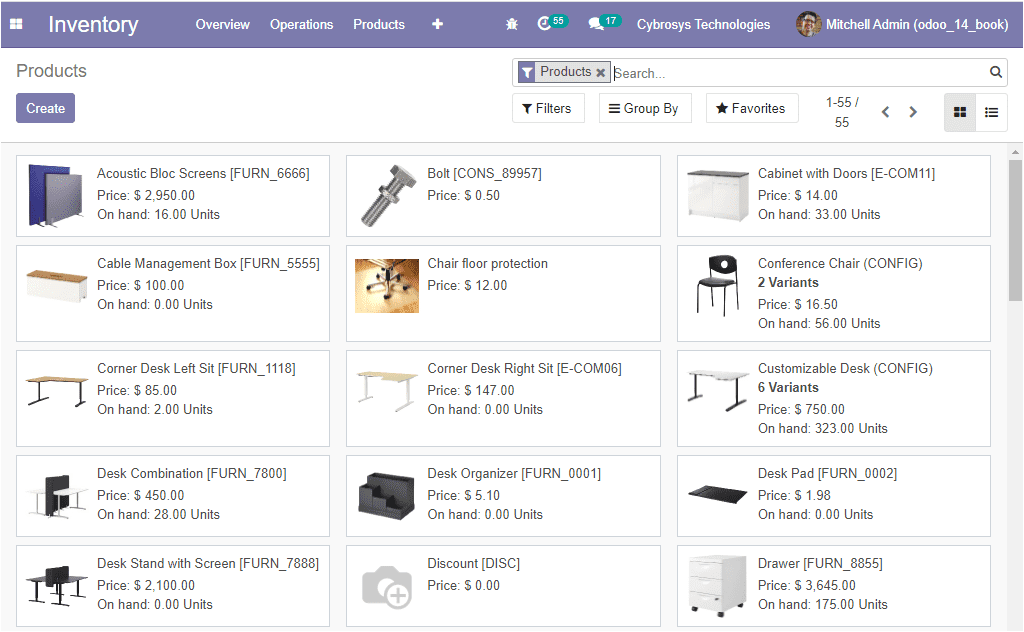
In this product window, you can view all the products described on the platform
along with the product description. The product in the dashboard can be viewed in
both Kanban and List view. Moreover, all the default and customizable features such
as filters, group by, favourite search are available in the window. Additionally,
this window provides you the provision to create new products. This can be done
by selecting the Create icon available on the top left corner of this window. The
image of the window is depicted below.
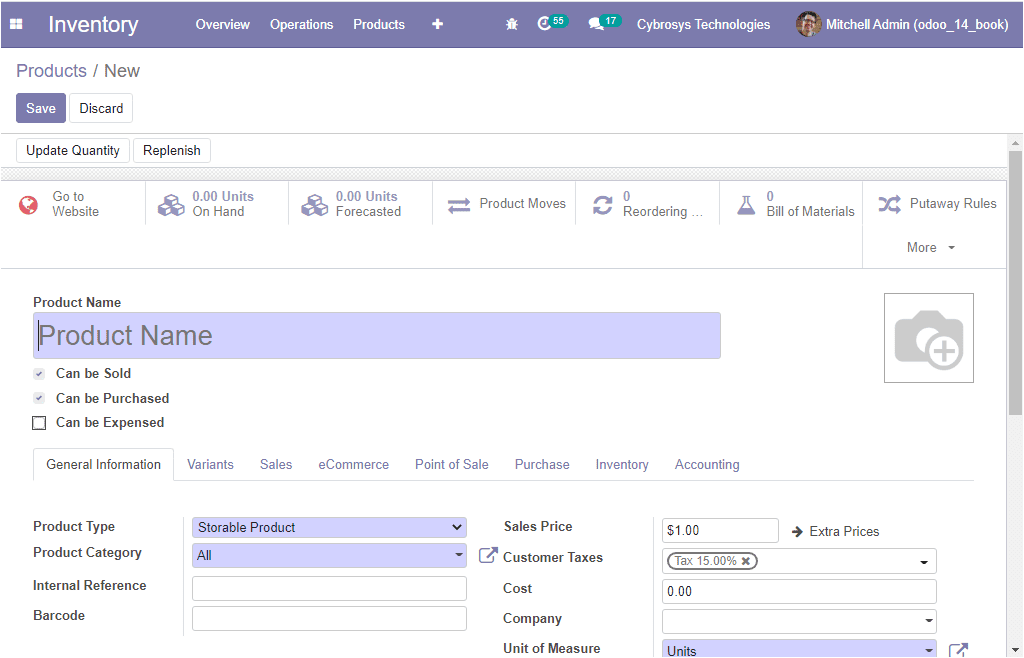
In the product creation window, you can provide the product name and then you can
specify whether the product Can be sold, Can be purchased, Can be Expensed. Also,
you can allocate the image of the product in the allotted space. There are various
smart buttons available on the top of the window and these icons direct you to the
Company Website, onhand quantity menu, forecasting menu, product moves, reordering
rules, bill of materials, Putaway rules, units of measure purchased, unit of measure
sold, and digital files.
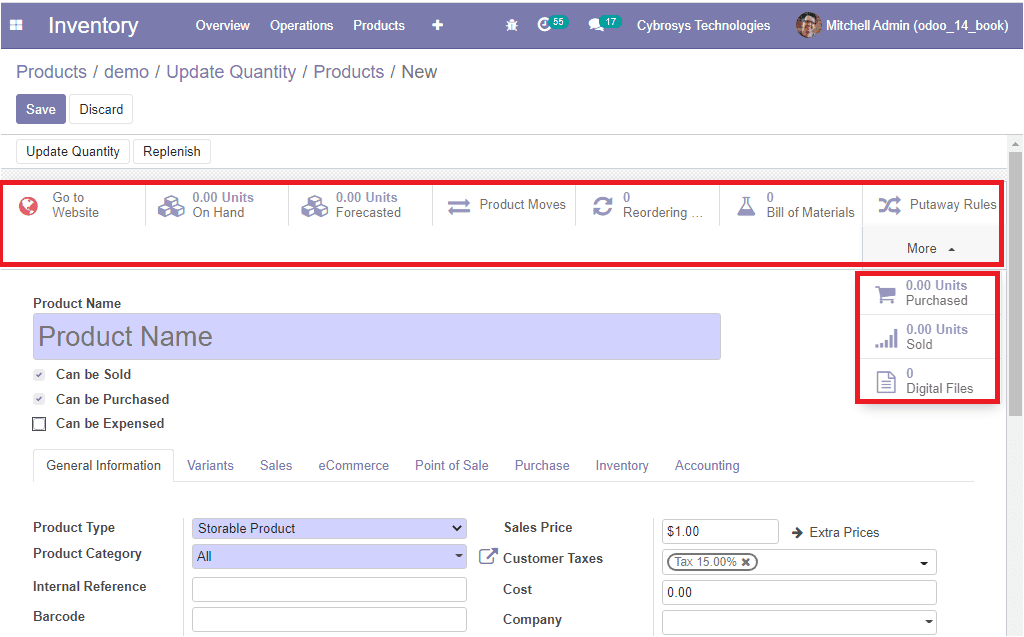
Under the General Information tab, you can describe the Product Type, Product Category,
Internal Reference, Barcode, and Sales Price along with the Customer Taxes, Cost,
and the company under which the product is being sold. In addition, the default
Unit of measure used for all stock operations can be mentioned along with the Purchase
Unit of Measure. The purchase unit of measure is the default unit of measure used
for purchase orders. It must be in the same category as the default unit of measure.
Finally, you can describe the Internal notes in the allocated box.
The Product variants for the respective product can be described under the Variants
tab of the product creation window. For that, you can select the Add a line option
available and allocate the product variant based on the various attributes accessible
such as colour, size, material, and many more.
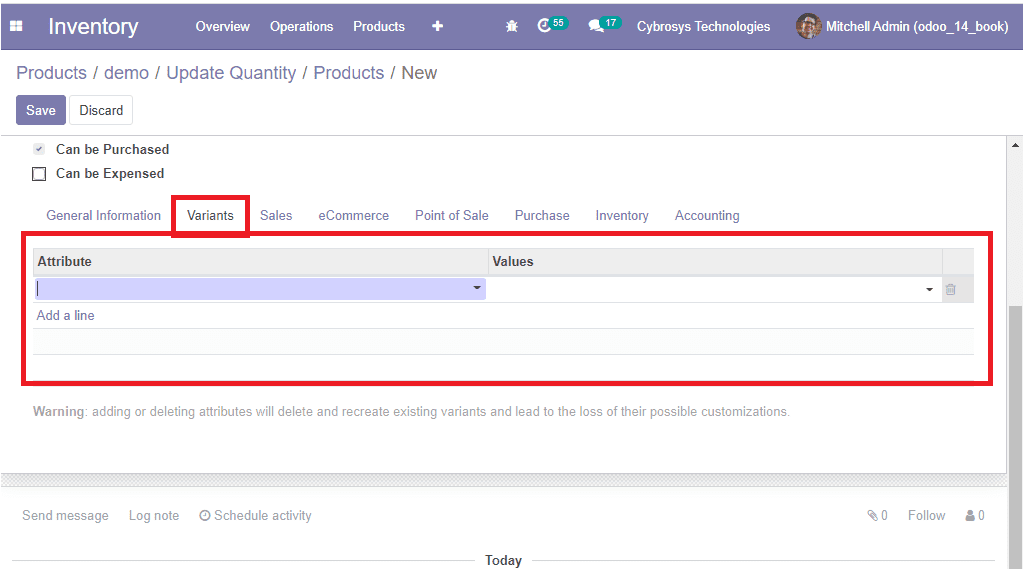
Under the Sales tab of the product creation window, you can describe the Invoicing
Policy of the product operation as Ordered quantities or Delivered quantities and
the Re-Invoice Expenses associated with the product can be enabled as No, At cost,
and Sales price. Additionally, you can check the box near the option ‘Is an Event
Ticket’ to automatically create an event registration at the sale order confirmation
of the product associated. Moreover, you can specify the Email Template for sending
a product-specific email once the invoice is validated. Also, the Optional Product
can be provided for the website, and the Sales Description along with warning messages
can be customized.
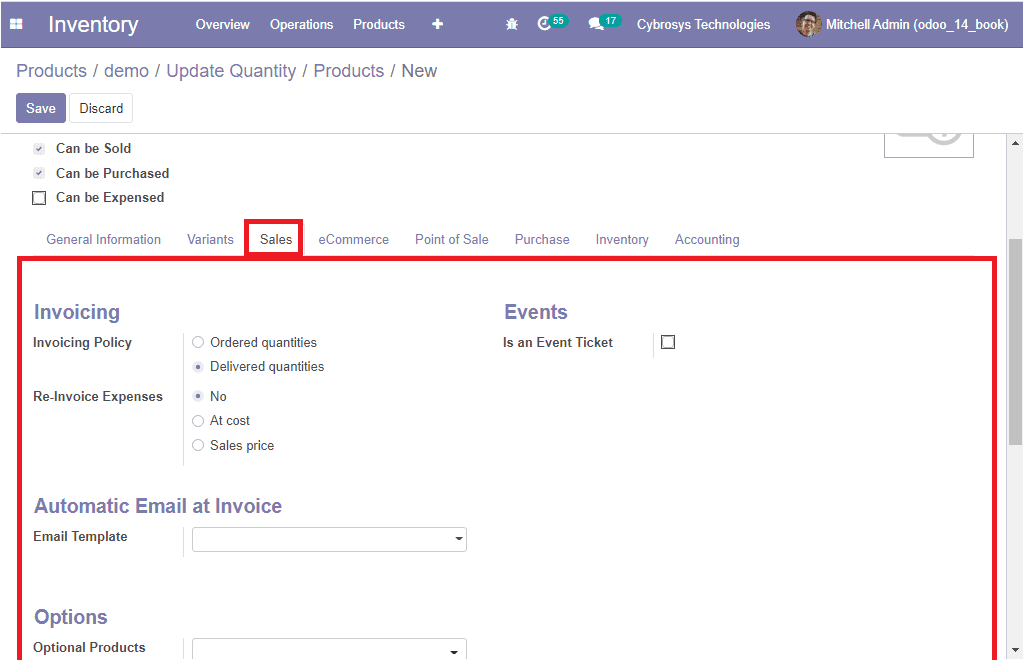
Under the ecommerce tab of the product creation window, the ecommerce website description
of the product can be defined. You can allocate the Website, Website sequence, Categories,
Availability, Alternative Products along with the Accessory products and Ribbon.
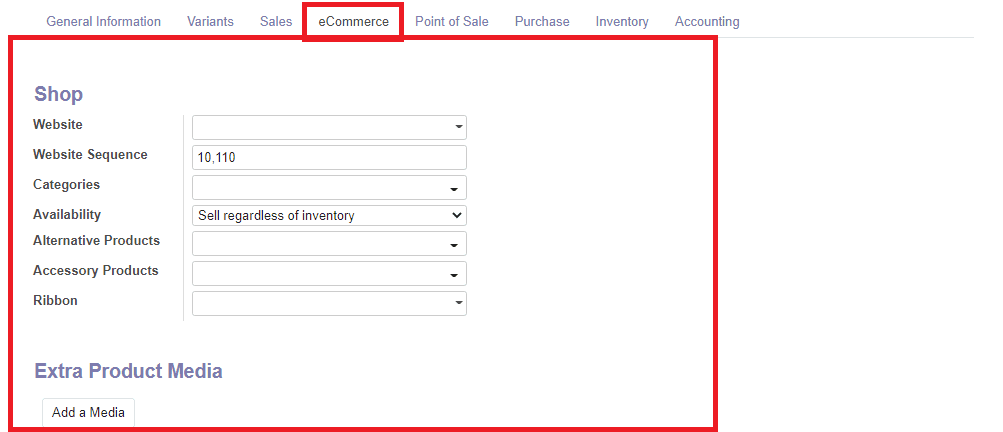
In addition, you can create Extra Product Media by selecting the Add a media button
available. By selecting the Add a media button, you will be depicted with a popup
window where you can provide the Image, Image Name along with video URL. The image
of the window is depicted below.
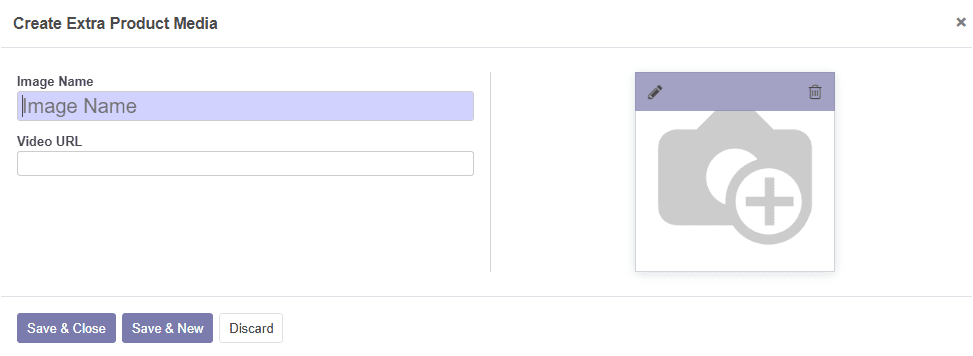
In the Point of Sale tab of the product creation window, the product can be enabled
for the Point of Sale. The image of the Point of Sale tab is displayed below.
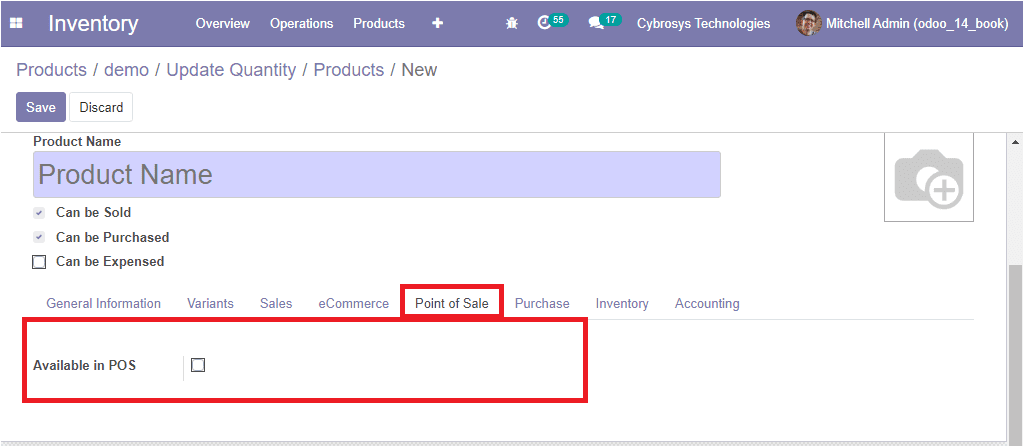
Under the Purchase tab of the product creation window, you can allocate the purchase
details of the product. First, you can add a vendor by selecting the Add a line
option available. In the reordering menu, you can describe the procurement either
as Create a draft purchase order or Propose a call for tenders. In addition, the
Vendor bills, Vendor Taxes (default taxes used when buying the product), and Control
policy can be provided. The control policy can be made either in ordered quantities
or received quantities. Moreover, the Purchase Description and Warning when purchasing
this product can be defined.
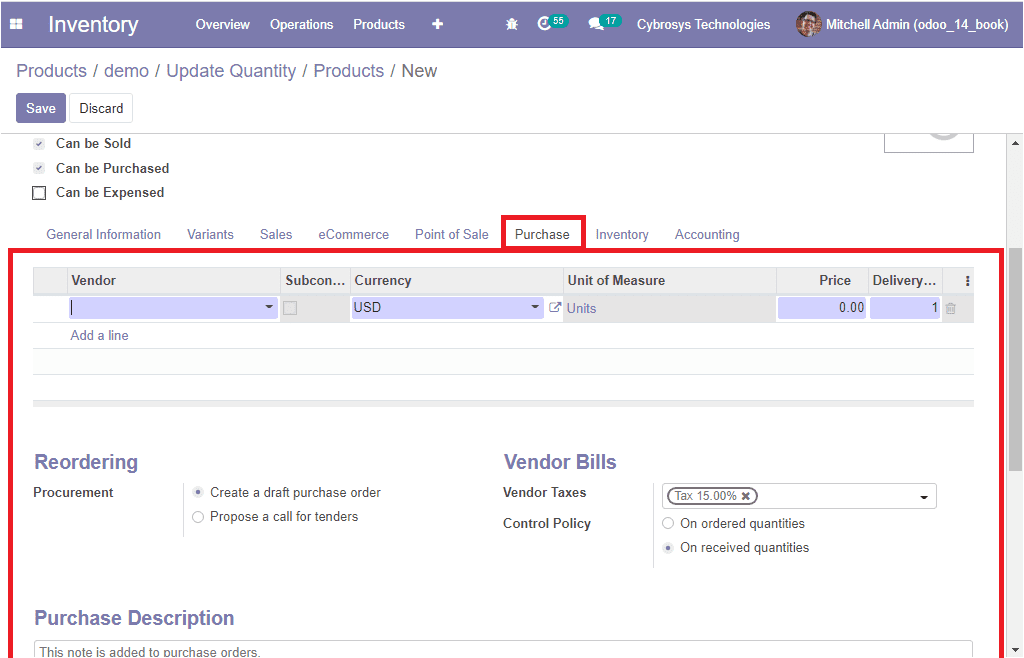
The inventory operations of the respective product can be allocated under the Inventory
tab of the product creation form. First of all the Routes of operations can be defined
and the tracking details based on the serial number and lot number operations can
be specified. In addition, the Logistic details such as Responsible employee, Weight,
Volume, Manufacturing Lead Time, Customer Lead Time, HS Code can be described. Moreover,
the counterpart location aspects such as Production Location and Inventory Location
can be defined. Additionally, you can provide the different ways to package the
same product by selecting the Add a line option available under the Packaging tab.
Finally, you can mention the custom-made description for Delivery Orders, Receipts,
and for Internal Transfers.
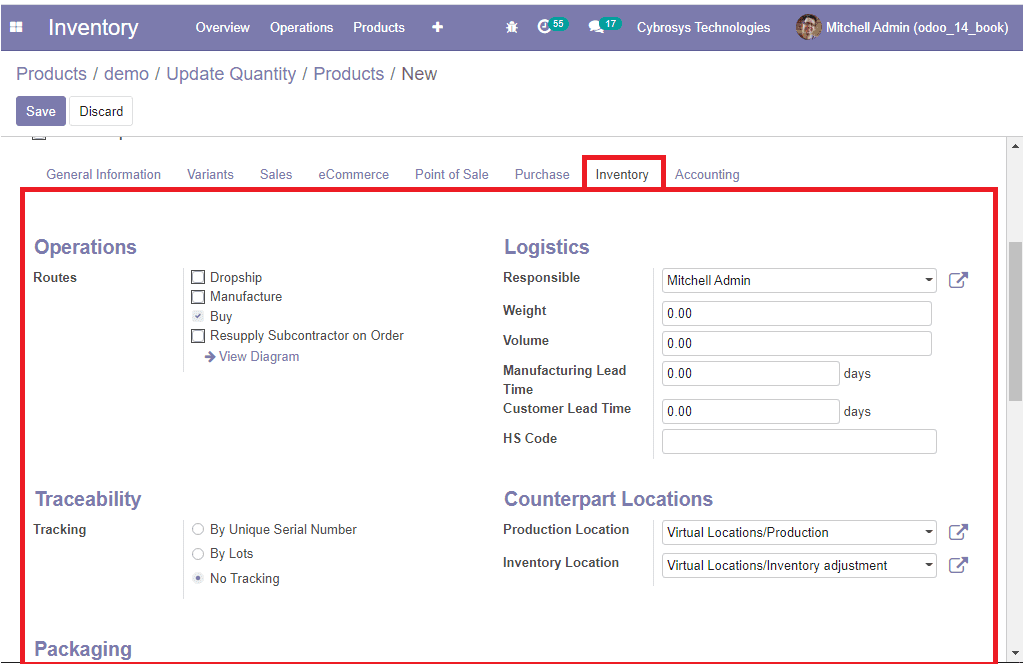
Now the Accounting aspects of the respective product can be defined under the Accounting
tab of the product creation window. The financial operations of the product can
be defined in both the receivable and payable aspects.
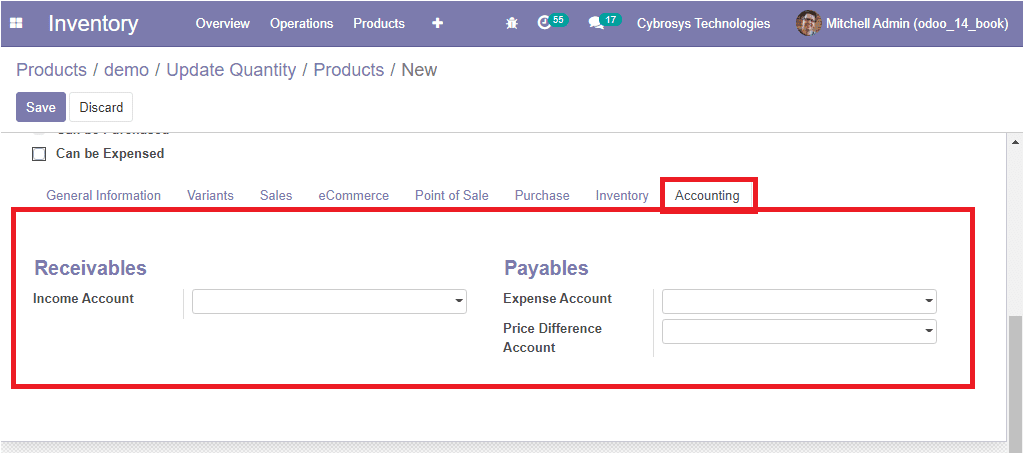
So far we were discussing the Product configuration in the platform and now let
us discuss the Product Variants window available in the platform.